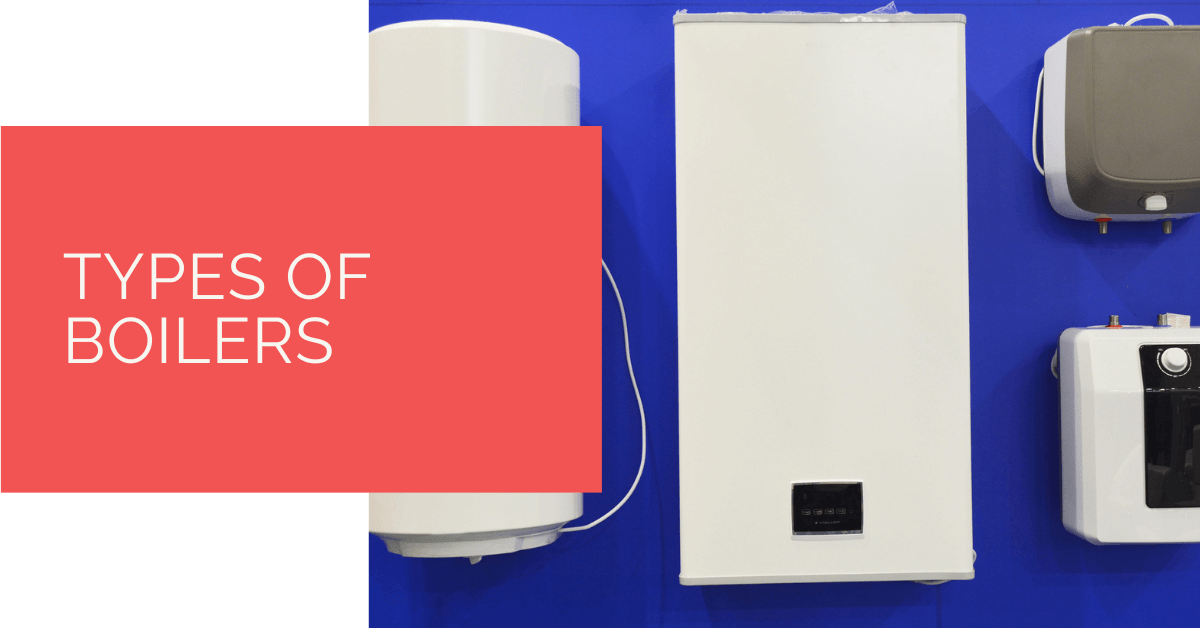Are you considering buying a boiler for household or industrial purposes but don’t know where to begin? To clear this doubt, you first need to understand what a boiler is:
A boiler is a closed vessel used to heat a liquid to convert it into steam or vapour. Various direct or indirect applications of the produced hot water, steam, or vapour exist. When under pressure or vacuum, steam or vapour produces high energy.
Further, the energy produced by boilers has many uses, such as hot water central heating, boiler-based power generation, cooking, and sanitation.
Modernisation and advancement of science have made it possible for a wide range of boilers to be available in the market suited to every need.
Many kinds of boilers are available depending on various requirements and the size of the task at hand. This article will broadly talk about two types of boilers:
- Industrial Boilers
- Residential household boilers
Contents
Key Takeaways
- Boilers are closed vessels that convert liquid into steam or vapour, with applications ranging from heating to power generation, cooking, and sanitation.
- Residential boilers include electric boilers, combi boilers, system boilers, condensing boilers, natural gas boilers, and oil boilers, each with specific features and suitability for different household needs.
- Industrial boilers come in various types, including fire tube and water tube boilers, designed for high-pressure steam generation and catering to large manufacturing and utility facilities.
Residential boilers
Hot Water Boiler
Hot water boilers use one or multiple pumps for water distribution to your home’s radiators.
The system used for water distribution in hot water boilers requires high water pressure and temperature. This is for the proper distribution of water to the radiators.
Electric Boiler
Electric boilers are the most commonly used boilers in household settings. This conventional boiler heats and stores water in an insulated tank to supply household outlets. Such heat only boilers are environmentally friendly and have a short output time.
The massive acceptance of these regular boilers in households is due to their cost-effectiveness. They are low in per unit cost and have an affordable installation rate. It is ideal for rural homes as they work on household electricity eliminating the need to be connected to the main gas line.
The only downfall to an electric boiler is a little high electricity bill and a consistent problem of running out of hot water every time there is a power cut.
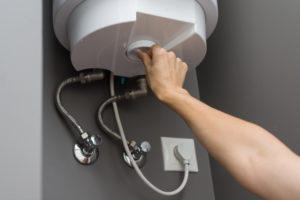
Combi Boiler
Electric boilers are falling out of favour since the introduction of the combi boiler or combination boiler. Combi boilers provide hot water on demand and have an extremely low capacity. They solve your house’s heating and hot water needs, hence the name combination boiler.
They conserve energy and reduce expenditures by heating the water only when needed. While gas combi boilers are common in colder countries, tropical countries also use electric-style combi boilers.
Solar thermal systems are also a growing trend as they have a meager running cost and are environmentally friendly. Some combi boilers are compatible with solar thermal installations. They can intake already heated water which increases their efficiency further.
System Boiler
If your household’s heating requirements are more significant than a combi boiler’s capacity but smaller than that of a regular boiler, system boilers might be the perfect fit. System boilers require unvented hot water storage, but no additional tanks are needed.
Steam Boiler
Steam boilers depend on heat exchangers to distribute hot water directly to your home. The water comes through pipes that fill the radiator network running through your home.
The radiators receive the pressurised hot steam. The vapour is then returned to the boiler system so that it can be reheated and recycled.
Natural Gas Boiler
The latest technology has given rise to water heaters that run on propane or natural gas. The selection of propane or natural gas depends on the house’s location. If the house belongs in a rural area, it usually uses propane boilers.
If you choose to go with the natural gas boiler, it will get its supply through an authorised gas line supply of the house. It connects to the main pipeline that runs through the nearby road.
But if you are in a rural setting, you will likely use a propane gas boiler. This is due to the main gas line’s poor connectivity due to the location’s remoteness. To replace this, gas boilers in rural areas take propane gas from the large tank directly outside the door.
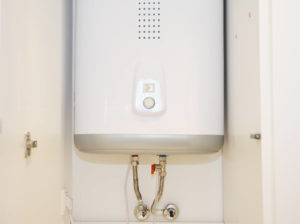
Oil Boiler
Oil boilers, also known as oil-fired boilers, are mainly used in industrial settings. However, rural areas also use these boilers because they have a limited supply of natural gases.
The primary boiler unit recipes oil in a separate tank, and then the hot oil and biodiesel are pumped back into the main boiler for the final heating process. When the water is hot and ready, the housing pipe system receives it.
New energy-efficient boilers such as condensing boilers are replacing oil boilers. Not only will this replacement save your energy bills, but it is also a more environmentally friendly initiative.
Condensing Boiler
Condensing boilers are widely accepted worldwide owing to their high energy efficiency. Due to its quality of energy efficiency, not only is it environmentally friendly but also a little easy on your pockets. They have two heat exchangers.
The first heat exchanger works with a standard hot water boiler: it heats the water and transfers it to the radiator at your home. Then this water runs through your home pipeline. This water reaches other heat exchangers. Finally, the water is returned to the boiler so you can use it again.
Installation of Household Boiler Systems
When installing a boiler system in your house, you should keep some basic things in mind. The amount of heating and hot water supply is an essential question. If your household has multiple bathrooms, you may need hot water availability in various showers at the same time. In such a case, you could plan to get a larger boiler system installed. However, don’t discount the idea of getting additional hot water tanks instead. They might suffice your requirement for multiple parallel hot showers without burning a hole in your pocket.
If you get hot water tanks installed in your house, plan to create an airing cupboard. The residual heat from the tanks can provide additional space for storing or drying towels and clothes.
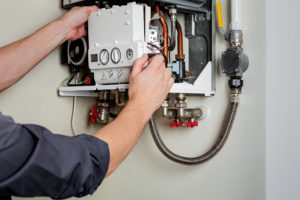
Industrial Boilers
Fire Tube or Shell Boilers
These are usually manufactured as packaged units. They consist of complete pumps and control systems. These boilers are ready to use only through connection with an appropriate fluid supply.
This boiler retrains the hot gas and flame that forms after combustion in tubes arranged in a bundle inside a water drum. Then water is circulated outside the tubes. It gradually heats up and rises to the top of the boiler drum. Finally, the steam escaped through the head of the drum.
Depending on the requirement, fire tube boilers efficiently generate steam from medium to low pressure. The level is usually below 15 bars. The maximum level of shell boilers is up to 30 bars at 70,000 kg/hr.
Such a high pressure and steaming rate need thick plates and walls of the tubes, which makes the design economically weak.
Water Tube Boilers
In contrast to a fire tube boiler, a water tube boiler circulates water inside the tubes while the flame and hot combustion gases flow outside them. Some of the water tubes serve as the furnace’s walls in a furnace that burns the fuel.
The first boilers of this type, although the most common – the Lancashire boiler – did not have a chimney for energy recovery from the flue gas. In a simple plumbing circuit, steam bubbles form on the heated side of the tube.
The resulting steam mixture has a lower density than cold water on the unheated side and rises, circulating throughout the system. Steam escapes from the water in the steam space after rising and reaching the vat.
Due to density differences, the natural circulation of water between a steam drum at the top and a mud drum at the bottom may be present in water tube boilers. In forced circulation boilers, a pump circulates the water.
Compared to the circulation pattern produced by density variations, this results in more favourable flow management. If the boiler operates over a wide capacity range, this is crucial.
Large manufacturing sites and electrical utilities require high-pressure steam and large-capacity boilers. They hence are the most common users of water tube boilers. Although building on site is most common for water tube boilers, smaller units are becoming available as packaged goods.
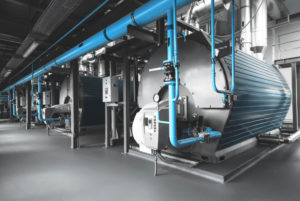
Other Boiler Types
Apart from the ones mentioned above, a few other varieties of boilers exist. These are:
Coil Boiler
The design of a coil boiler allows it to transfer the feed water to single or multiple coils via a pumping mechanism. The fluid flow around the input heat produces steam, consistent with 10-20 per cent wetness.
The arrangement of coils sometimes includes an economiser section in the exit area for the flue gas.
Although it is easy to dump the feedwater, it returns to the separator drain for recycling through coils. The incredible power of these boilers is that they can carry a very high amount of dissolved solids in water without decreasing the purity of the generated steam.
Coil boilers need attention for maintenance as the coils inside need to be wetted and cooled correctly, preventing corrosion, drying out, and deposition.
In addition, good water treatment is essential in coil boilers as they are highly susceptible to corrosion given the inability of dissolved oxygen and carbon dioxide to escape.
Electrode Boilers
Even at industrial scales, not all facilities require huge volumes of steam. These smaller establishments also prefer smaller and more conveniently packaged units. Electrode and electrically heating boilers provide precisely this solution.
Most used electrode boilers are of one of the following two forms:
- Similar to the small immersion heater used in homes for heating water in buckets, small industrial establishments use large-scale versions. Like fire tube boilers, immersion electric boilers also have the same mechanics. However, heat is not provided from the combustion of fuels but through heat generated by electrical resistance. In addition, the water treatment required is the same as that for fire tube boilers.
- Feedwater conductance is critical for electronic resistance boilers as they generate heat by utilising the internal resistance drop through the boiler water. However, electronic resistance boilers don’t scale well and are prone to corrosion, hence requiring good quality feedwater treatment.
Heat Pump Source: Reliable Heating and Cooling Solutions
At Heat Pump Source, we take pride in our unwavering commitment to serving the UK with top-tier HVAC solutions. From the efficiency of heat pumps and the cool relief of air conditioning to the warmth of boilers, radiators, and underfloor heating, our dedicated team is always at the forefront of innovation. We understand the unique needs of every household and business, and we strive to provide dependable health and cooling products and services that are tailored just for you. Ensuring your comfort and satisfaction is our utmost priority. Whether you have questions, need guidance, or require support, we’re always here to assist. Please don’t hesitate to contact us; we’re eager to be of service.
Final Thoughts
The advancement of boiler technology is on a consistent path of improvement to decrease the cost of boilers and increase their energy efficiency. The market’s competitiveness is launching better-fashioned and environmentally friendly boilers.
However, corrosion, incomplete combustion, etc., can cause boilers to lose heat and increase wastage. Therefore, good maintenance of your boiler system is essential.
In this article, you can find details about existing industrial boilers and household ones too. Since now you know the types of boilers, it will be easier for you to choose the best system for your needs.
About the Author
At Heat Pump Source, our articles are the product of a collaborative effort among a team of highly skilled HVAC experts. Our dedicated professionals, hailing from diverse backgrounds in heating, ventilation, air conditioning, and refrigeration, contribute their extensive knowledge and experience to every piece of content. This multidisciplinary approach ensures comprehensive coverage. Our commitment is to deliver authoritative, reliable, and tailored advice to meet the unique needs of every household and business across the UK.

